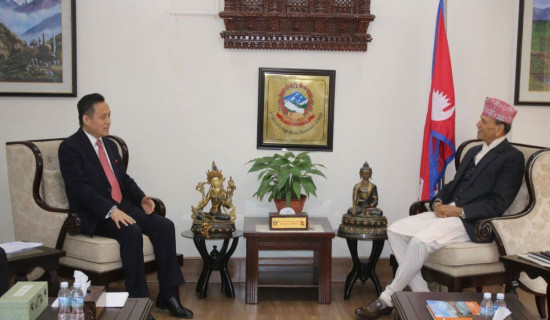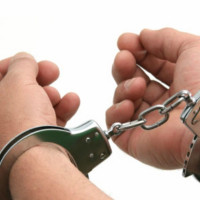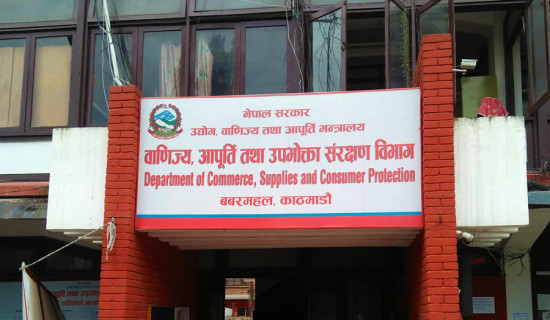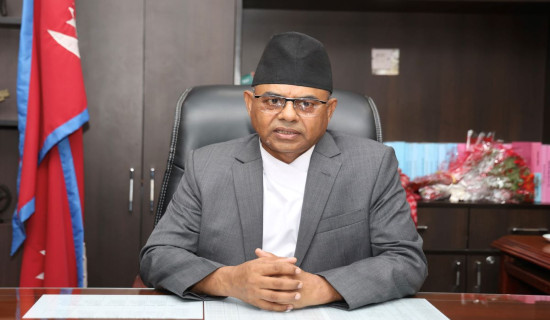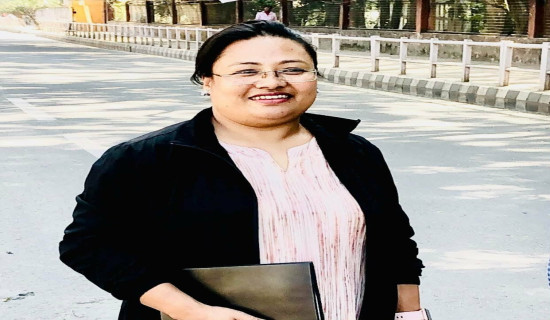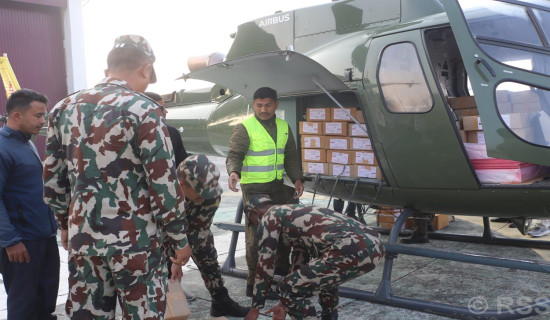- Thursday, 26 February 2026
Democracy And Right To Equal Opportunity
Democracy and equality are understood as the two sides of the same coin. Proper practices of democratic rights lead to equality in the society. Such a belief is based on the assumption that democratic values such as the rule of law, periodic elections, free press, and human rights enable people to elect appropriate figures to write laws and govern them, which ultimately create a robust ground for equality. It is because of this belief in democracy's power to create equality that democratic societies are expected to be peaceful, because in absence of equality there can be no peace.
If periodic election alone is the hallmark of democracy, there has been democracy in Nepal for the last 65 years since it was introduced in 1951. An armed struggle spearheaded by the Nepali Congress and its Liberation Army combined with People's Movement which saw involvement of the leftist forces was able to overthrow the autocratic Rana regime. But it took some eight years to hold the first ever parliamentary election. Worse, the elected government was sacked by the monarchy within a couple of years and then the Panchayat system was imposed. Panchayat did have periodic elections for members of the National Panchayat assembly. Therefore, if election is the benchmark of democracy, Panchayat cannot be ruled out as undemocratic.
When Panchyat system was toppled in 1990 or democracy was reinstated through what is now known as the People's Movement I, most people had high hopes that their days will turn bright. But situation did not move forward as aspired simply because periodic election was not going to heal the historical anomalies and backwardness of the society, and national politics. In retrospect, we see slavery and democracy existing side by side as evidenced by the fact that the bonded labourers of the mid and far western Nepal were freed after over a decade since reinstatement of democracy, and that also when the Maoist People's War was sweeping across the country and there were instances of the bonded labourers joining the insurgency. Ironically, slavery and democracy did exist side by side even in the USA for nearly nine decades before it was abolished in 1865.
With regard to rule of law, free press and human rights, Nepal's constitutions promulgated one after another since the doing away with the Rana regime have in this or that form expressed commitment to them. This also gives an impression that democracy has been there for over seven decades in Nepal.
For sure, the constitutional commitments were not implemented in true spirit of the term particularly during the Panchayat system. But it should not be taken for granted that such constitutional commitments were fully implemented in other periods.
Had the governments elected after reinstatement of democracy worked with true democratic spirit for creating equality, no ground would have remained for the Maoists to opt for the People's War in 1996. It is so simple, inequality leads to conflict. The decade long People's War did hinder economic development, but it accelerated people's socio-political consciousness. In course of the rebellion, people grasped the most characteristic spirit of the French Revolution-- Man is the creator of his destiny- and that of the US Declaration of Independence- All men are created equal-- which ultimately led the people into the urban streets to demand abolition of monarchy and establishment of a republic. The Maoists that had started the People's War with the belief that 'Political power grows out of the barrel of a gun' expressed readiness to lay down arms and hold Constituent Assembly election so that people write their own constitution.
Seven political parties and the Maoists inked the agreement and the People's Movement II became successful. Following the peace accord in 2006, the CA poll was held and the new constitution was finally promulgated in 2015.
As in the previous times, people's aspirations ran high with the new constitution and the political parties vowed now to usher in economic development. Compared to the previous ones, the new constitution is the most democratic and inclusive one, because of which there is at least a woman member from the downtrodden Dalit community in every ward of the local level in addition to another woman member, 33 per cent representation of the women is ensured in parliament while reservation has been allocated for oppressed peoples, castes in state organs and the public employment.
The Maoists deserve kudos for this change because if they had not opted for the battle, there would have been no CA and if there was no CA, this inclusive constitution was most unlikely to come by.
The Maoists deserve kudos for this change because if they had not opted for the battle, there would have been no CA and if there was no CA, this inclusive constitution was most unlikely to come by. However, in the last seven years since the the promulgation of the new statute, people's aspirations have dampened, and this was expressed in the recently held parliamentary polls in which most mainstream political parties saw their voter base diminishing. Parties have delivered very poorly on basic public service issues, let alone taking initiative to ensure right to equal opportunity.
If men are created equal as enshrined in the US Declaration of Independence, they are entitled for equal opportunity. If democracy means equality, all should get equal opportunity so that they can compete with one another fairly on a level playing ground. The state as the guardian cannot discriminate its citizen.
We in Nepal have inclusive democracy but we also have many landless people. How long can democracy and landlessness go hand in hand? Our democratic constitution has enshrined health and education as fundamental rights, but we have the situation that forces people to pay for educating their offspring and treating their basic illness.
If free education up to secondary level remains only in paper, and in practice people have to bend their back to educate their children to this level, what they think of democracy and constitution? These are some basic questions that need to be answered so that people believe that democracy means equality to some extent. If people are subjected to pay for enjoying fundamental rights in a democratic state, it is sure that the people will seek an alternative to such a system. Therefore, it is imperative that those presently in the helm of power or those who wish to be in power in future should ponder over such issues on this day when we are observing Democracy Day and talking highly about the merits of a democratic polity.
(Tiwari is the coordinator of risingnepaldaily.com, the online edition of The Rising Nepal)



